Over the years, early learning in low-resource communities in Uganda has been defined as wanting in quality, and retention.
That whereas most children are going to school more than ever, they struggle to read or sound out letters of the alphabet even after going through the foundational lower primary level.
However, a new community-based problem solving approach is working with teenagers whose parents and guardians are able to afford them a better education to go pick their peers up.
Annet Ajambo aged 16, and Andrew Kiviiri 14, for example live in Nsambya, a low-cost suburb on the outskirts of the country’s capital Kampala where a cocktail of socio-economic ills permits only a few children to get a good education. They are part of the lucky few.
Ajambo is in Senior Three, and goes to St. Francis Secondary School in Nsambya, while Kiviiri who is in Senor One is at Tropical High School in nearby Kabalagala, both fairly good schools by national standards.
“We team up during holidays to share the knowledge we get from school with others who can not afford education,” Ajambo says.
In Uganda, children have three school breaks in a year. In each of these and for over a year, Ajambo, Kiviiri and an army of other teenagers go around teaching basic literacy and numeracy.
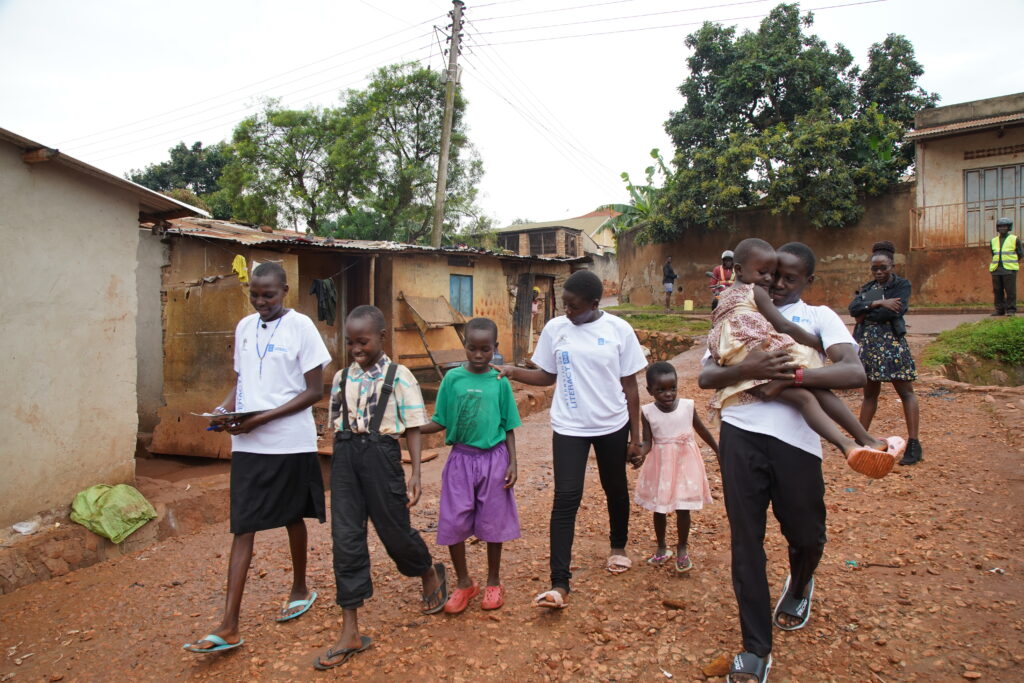
Andrew Kiviiri carries a child to a morning reading class after a door-to-door community sweep together with fellow literacy champions in Nsambya outside Kampala. Photo by Richard Mugambe.
“We go door-to-door collecting children, and conduct community book reading sessions to help the little ones improve on their reading skills which even helps them more to academically perform at school,” Ajambo adds.
For Kiviiri, the inspiration to teach his peers is drawn from the fact that children will learn better from those that they relate with.
“In the normal classroom setting, you learn better from a colleague sometimes. When we teach, things become more relatable to the children because of our shared experiences,” he says.
For parents, the peer-to-peer classes offer beyond just learning to provide a safety net against social abuse.
“We learned lessons during covid-19 while our children were home and redundant. So when they are gathered to learn we know that they are safe,” says Sylivia Nyabutono, a parent who has banked on the model to skill her three-year-old daughter ahead of school.
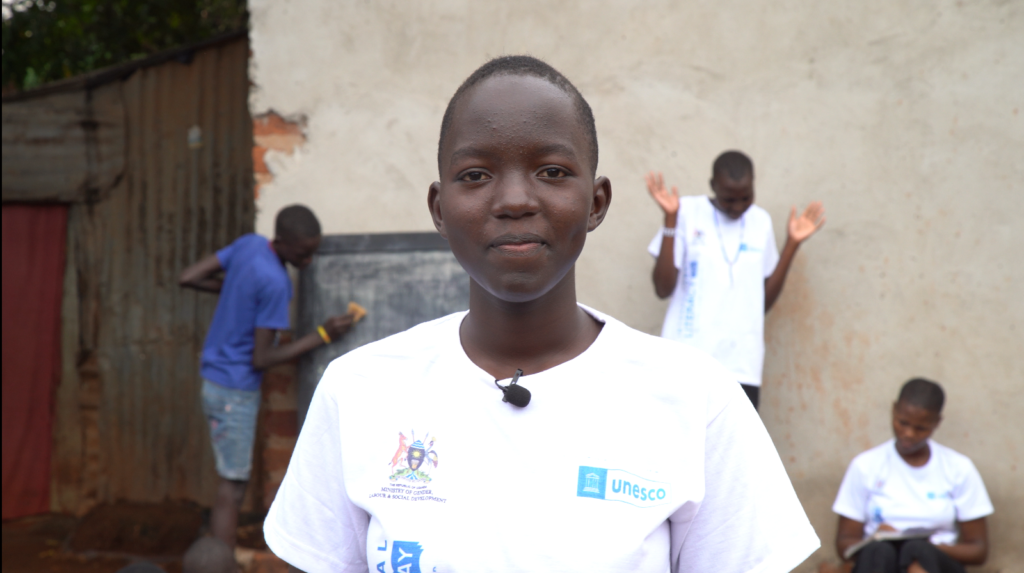
Annet Ajambo speaks to the Solutions Now Africa team after a morning reading class in Nsambya. Photo by Richard Mugambe.
Even though Uganda has registered an increase in the number of children in school, independent reports have suggested deficiencies in quality of learning and retention.
Experts have summarised trials of Uganda’s education system as a cocktail of cost, infrastructure gaps, socio-economic and cultural barriers that especially work against young girls, low adaptation of technology among others.
“For every 100 children that start school, 13% complete primary education, 8.6% secondary, while 6% complete University. These statistics show that there is a lot of leakage in our education system because of these barriers,” Ritah Lulua, the Mastercard Foundation Education Project told journalists in Kampala.
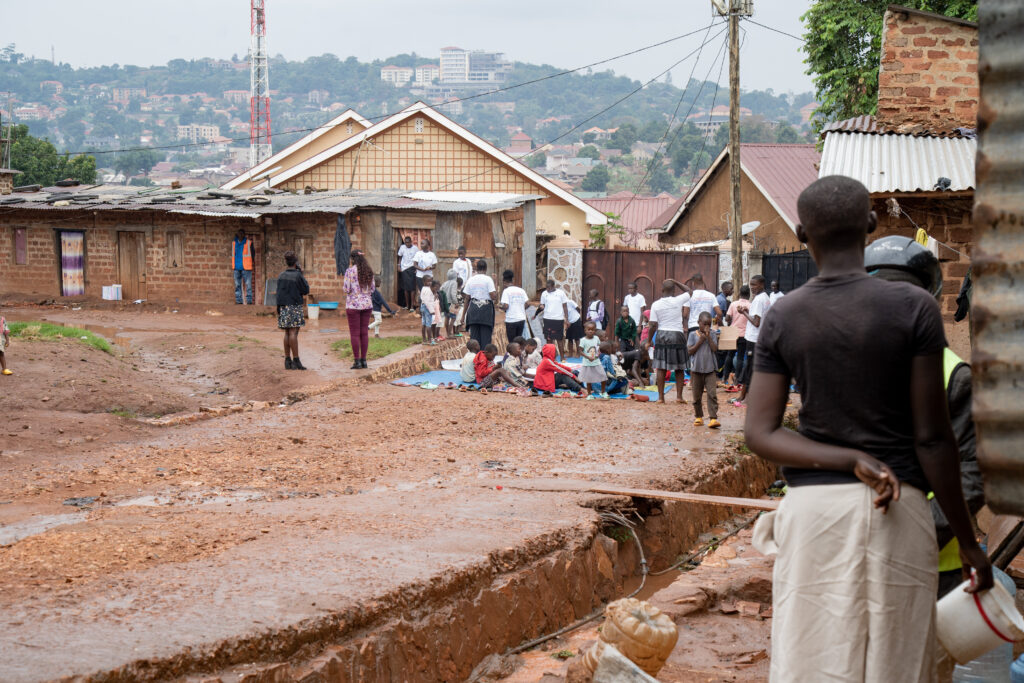
Children gather for a book clinic after a community mobilization in Nsambya. Photo by Richard Mugambe.
Also, a 2021 report by non-profit child learning tracker Uwezo notes that only 39.5% of school children from primary three to Seven have the required competence in reading, and figures are thought to be even higher in remote and low resource settings across the country.
“I grew up in such a community … (and) one of the challenges I faced as a child was that by the age of 11, I could not read, write, or spell. No boy or girl in this country ever has to go (up to that age) without exposure to reading,” says Hasfa Mago a Literacy advocate and Founder of Read to Learn Foundation, a women-led non-profit focused on early literacy development with an emphasis on the creation of community-driven and led interventions.
According to Mago, the Read to Learn flagship program seeks to empower young literacy champions like Ajambo and Kiviiri who could easily cause change in their communities through inspiration, advocacy, and peer-to-peer mentorship.
They are taken through a 12-month rigorous fellowship program, where they are trained in basic pedagogical skills, leadership and computer literacy. After which, they are sent to serve their communities as agents of literacy for a year.
“With this fellowship, we focus on empowering young people between the age of 13-18 to become change makers within their communities. These young people are trained in different capacities and then they go out in their communities and serve,” Mago says.
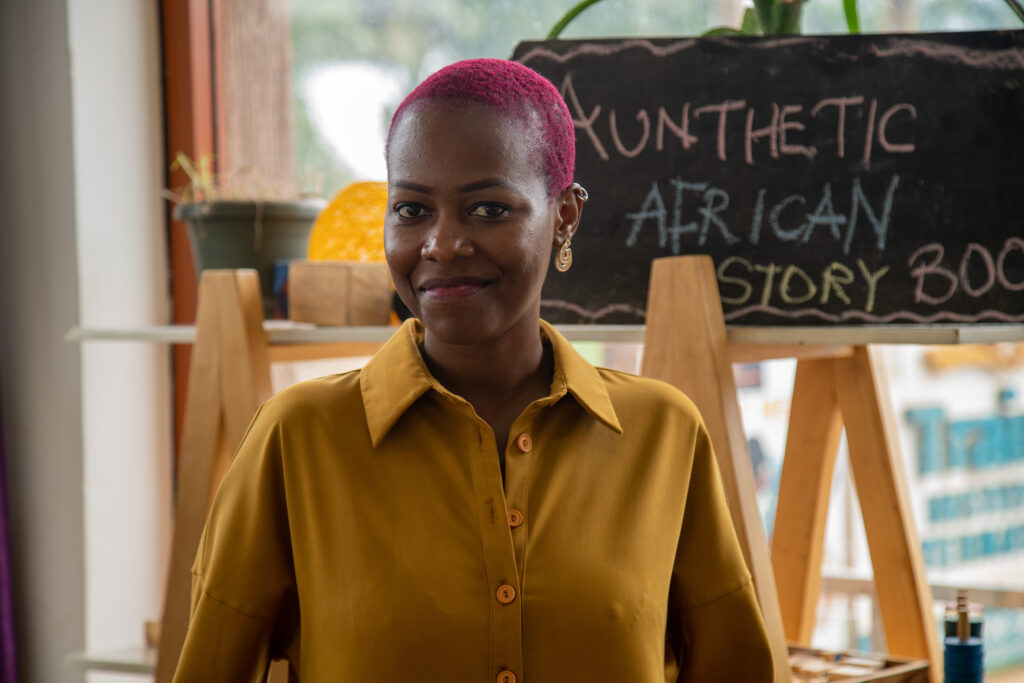
Hasfa Mago the founder at Read to Learn Foundation. Photo by Richard Mugambe.
Their interaction with children is informal, and playful but designed to impact learning outside the normal classroom setting.
Since their graduation as fellows in 2022, Ajambo, Kiviiri and their fellows boast of reaching about 1,000 children in the three school-term holidays of 2023. Dozens of other literacy fellows have been deployed in the informal suburbs of Katwe, Rubaga, Wakiso, and Nansana.
According to Hellen Mutesi, the Programs Manager for Read to Learn, these have reached over 2800 learners per year in 189 partner communities. Among these are teenagers who have never been in school who bank on them for literary skills.
“With this, we have been able to impact so many people with foundational learning because when you look at the schools we have gone to, yes schools teach the syllabus, kids cram what they teach them and then they pass but then teachers don’t have time to play with the children, read with them, have fun with the them in the process of learning.”
Ajambo says the program has inspired her to reimagine her purpose and be a contributor to the betterment of her community.
For Kiviiri, the literacy campaign is offering leadership traits upon which they are building on, even in schools they go to.
“Teaching children has changed how he views life. It is a privilege to get a chance to go to school and study and shift the same privilege to others who don’t have such an opportunity,” he shares.
Kiviiri’s teacher attests to his competence and leadership in class emphasising that he always takes lead in most of the activities in school. He insists that this goes on to his academic excellence which has always made him standout.
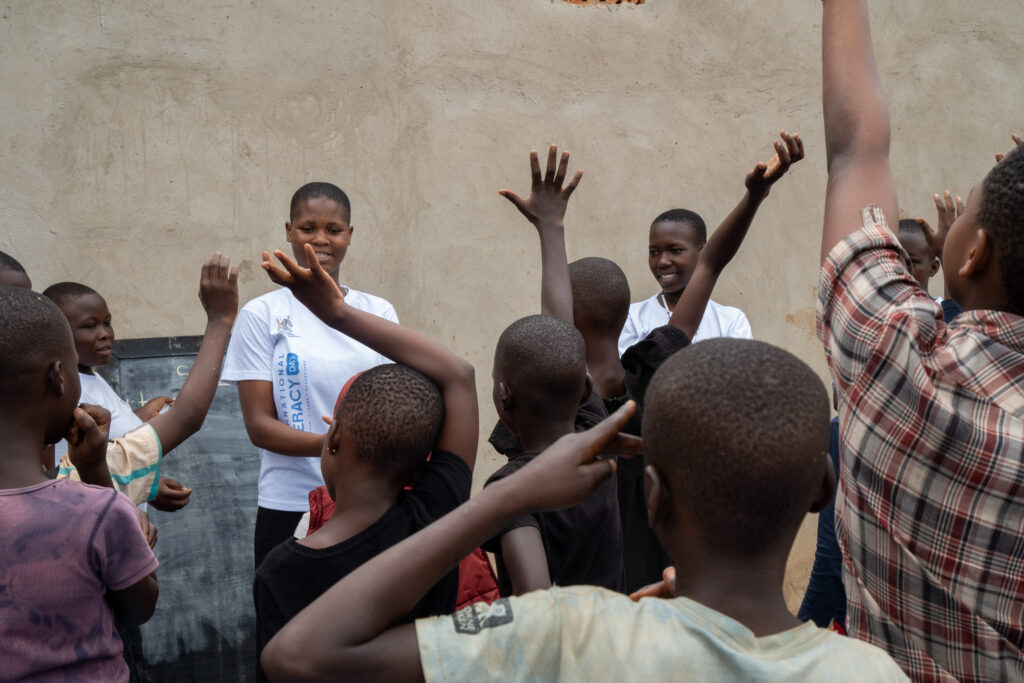
Children share ideas during a book clinic exercise in Nsambya. Photo by Richard Mugambe.
“Even when it comes to classroom arrangements, he is quick because when a teacher gets in class late, you find him discussing for his fellow children,” says Joseph Mbonye, a class teacher at Tropical high school.
Much as the youngsters are gearing up efforts to pick up their peers, the challenges of education access in low resource settings in Uganda demand more than their effort.
They can only help to seal the teacher to child ratio which has been sighted among the setbacks to quality learning.
However, challenges like cost, access, and retention of learners are still major obstacles to Uganda’s quality education journey.
Recent News
© 2022 - Media Challenge Initiative | All Rights Reserved .


